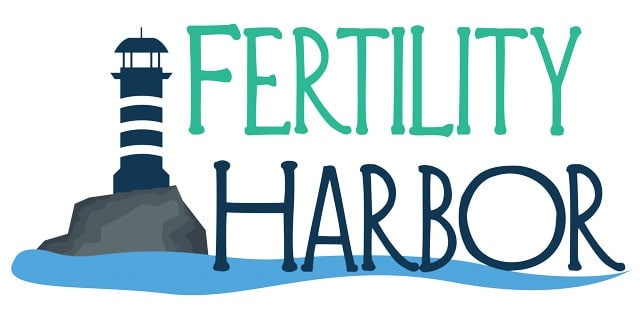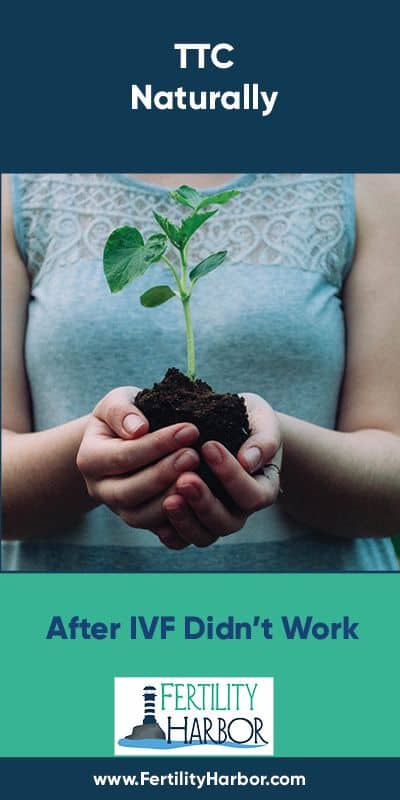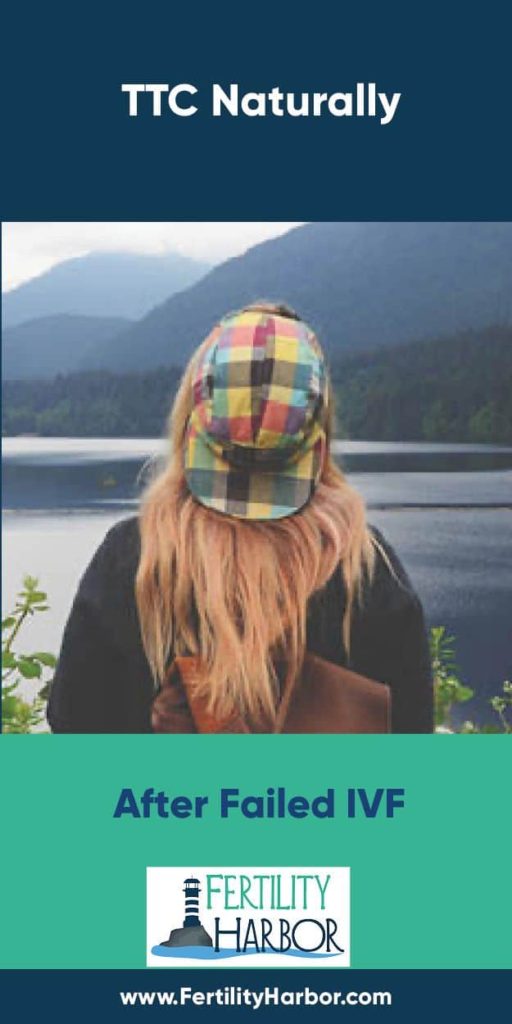This post was reviewed for medical accuracy by Rosalie Gunson, a Certified Registered Nurse Practitioner specializing in fertility care.
Tell someone that your IVF cycle didn’t work, and they’ll inevitably have a story about someone they know who got pregnant naturally after trying every fertility treatment under the sun. The story may be followed by some version of “Just stop trying and it’ll happen,” which can feel like a slap in the face after everything you’ve been through.
How often do people actually get pregnant naturally after IVF didn’t work? That’s hard to say, partly because fertility clinics don’t necessarily track couples who stop treatment to find out if they ever conceived.
But considering the expense involved in IVF, it is not surprising that many couples go back to TTC on their own after IVF is unsuccessful. And some people do go on to get natural BFPs! Your chances of conceiving naturally after trying IVF depend on a lot of factors, including the circumstances that led you to IVF to begin with.
For the purposes of this post, I am excluding people who have zero chance of conceiving without IVF, such as people using donor eggs or frozen embryos.
What is meant by “IVF failure”
An IVF cycle is said to have “failed” if it was cancelled before getting to the transfer stage, or the embryo was transferred but did not implant. In other words, no pregnancy occurred. (For further info about cancelled cycles, see Why Would a Cycle of Fertility Treatment Get Cancelled?)
An early pregnancy that ended in miscarriage would not be considered an IVF failure. Some early pregnancies just don’t work out for a variety of reasons, including chemical or ectopic pregnancy or serious problems with fetal development. This can happen whether you conceived with a doctor’s help or not, unfortunately.
Determining why IVF failed in your case
It is only natural to demand an explanation after you’ve gone through the hassle and expense of IVF and you’re still not pregnant. You may not get a satisfactory answer, though — sometimes you did everything right and the stars just didn’t align.
But that doesn’t mean that you and your fertility team can’t learn anything from your unsuccessful IVF cycle. There are many factors, both before and after the embryo transfer, that can be reviewed and analyzed to improve your odds of success if you try again.
It’s also possible that your infertility problems are caused by a genetic or chromosomal problem that you and your partner are not aware of. To find out, you’d need to do pre-implantation genetic screening next time. Pre-implantation genetic screening can help ensure that only viable embryos are transferred, increasing the chances of a healthy pregnancy.
The big question is whether you are willing and able to try IVF again. If you’re not, many of the big takeaways from this round are probably moot.
Discussing next steps with your partner
Unless you’re hoping to become a single mom by choice, you likely have a spouse or a partner on this fertility journey with you. After an IVF cycle has failed, it’s incredibly important to talk through your feelings together.
Here are just a few of the questions you could ask each other:
- Are you willing to try IVF again?
- If you are, how will we afford it?
- Are you interested in getting a second opinion from another RE or fertility clinic?
- Are you open to conceiving with the help of an egg donor or a sperm donor, if appropriate?
- How do you feel about adoption?
Take your time with these discussions. Make sure you’re both on the same page about what to do next.
It’s no secret that infertility can be very hard on relationships. Maintaining open communication about such intensely personal topics isn’t easy, especially when you are grieving. Be gentle with yourselves. Don’t be afraid to seek counseling if needed, whether individually or together. It’s worth it. For more information on keeping your relationship strong through infertility, see my post Does Infertility Raise Your Odds of Divorce?
Common reasons for taking a break after an unsuccessful round of IVF
One IVF attempt can cost more than $10,000. While insurance coverage for fertility treatments is getting better, lots of people (in the United States, at least) are still paying a significant amount out-of-pocket for IVF.
Many couples just can’t afford to do it all again — especially if they already invested in other treatments before moving on IVF. The cumulative cost of long-term infertility really adds up.
Other couples may have the resources for further rounds, but they are not ready to get their hopes up again. They need time to grieve and regroup.
And then there’s the physical toll that IVF takes on the body. After doing so many tests, shots, and procedures, many women decide enough is enough! They just need a rest.
These are all very common and understandable reasons for taking a break from fertility treatment after an IVF cycle didn’t work out.
TTC or NTNP after IVF failure
OK, let’s say your IVF attempt didn’t work. You’ve decided to hold off on more fertility treatment, but you still want to get pregnant if at all possible. You have two options, which are known in the online fertility world as TTC and NTNP.
“Trying to conceive” (TTC) means that you are actively trying to get pregnant. That means paying close attention to ovulation and making sure you are having plenty of unprotected sex during the fertile window. You may also be tracking your daily basal body temperature (“temping”), although this is certainly not mandatory.
Infertility Starter Pack includes all my recommendations for TTC products, including fertility-friendly lubricant and a thermometer for tracking BBT.
“Not trying, not preventing” (NTNP) means you are not using any form of contraception, but not making any special effort to get pregnant either. Basically, you’re just letting whatever happens happen. For couples who are exhausted from the pressure and scheduling involved in fertility treatments, NTNP can be a big relief.
Getting pregnant naturally after a successful IVF pregnancy
Until now, we’ve been talking about what to do after IVF didn’t work. But what if it was successful? Will you have to do IVF again if you want give your child a sibling? The answer is — you knew this was coming — it depends. (Sorry!)
Any mom knows that her body didn’t just revert back to normal once the baby was born. Among other things, hormonal patterns can be significantly different postpartum. Many women who did not ovulate “well” before IVF find that they ovulate like clockwork after having a baby. If lack of ovulation was the reason you did IVF, you may find it easier to get pregnant again without it.
Women who did IVF for other reasons, such as their partner’s low sperm count or structural problems in their fallopian tubes, are more likely to need IVF to conceive again.
For more info on TTC when you already have a young child, see my post TTC While Breastfeeding: What You Need to Know.
Unexpected blessings
The world is full of stories of people who were told they couldn’t conceive naturally and it happened. In some cases they ended up with different family dynamics than they’d anticipated, but they’re making it work:
- Having a child later in life than they’d planned
- Having a larger family than they’d planned
- Having children with a very different age gap than they planned
- Having a biological child close in age to an adopted child
So maybe your TTC plan didn’t work out quite as you had envisioned, but you never know — surprise blessings may be headed your way.
And hey, if you do get your BFP, you’ll be that success story everyone’s always talking about: “My friend/ daughter/ sister-in-law did all the fertility treatments under the sun, and when she stopped trying, it happened!”

This post was last updated in May 2020.




 I’m Jenn! Here I am with my beautiful twin boys. My pregnancy was possible thanks to fertility treatment for PCOS.
I’m Jenn! Here I am with my beautiful twin boys. My pregnancy was possible thanks to fertility treatment for PCOS.


